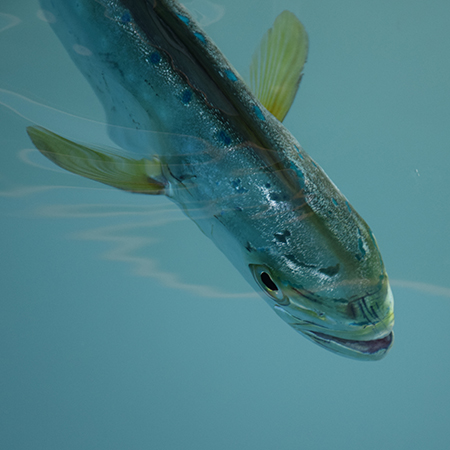Six years after the Deepwater Horizon drilling rig spilled nearly three million barrels of crude oil into the Gulf of Mexico, scientists have found that ultraviolet light
 is transforming the remaining oil into a more toxic substance that hinders the development of heart, eye, and brain function in fish. The research, led by scientists at the University of California, Riverside and the University of Miami, exposed embryos and larvae of mahi-mahi from the Gulf of Mexico to what they called weathered (exposed to years of sunlight) and un-weathered oil (taken from the drilling site) from the Deepwater Horizon spill in 2010. Compared to fish exposed to un-weathered oil, the fish exposed to the weathered oil experienced impaired eye and neurological function, reduced heart rates, and a buildup of excess fluid in the heart.
is transforming the remaining oil into a more toxic substance that hinders the development of heart, eye, and brain function in fish. The research, led by scientists at the University of California, Riverside and the University of Miami, exposed embryos and larvae of mahi-mahi from the Gulf of Mexico to what they called weathered (exposed to years of sunlight) and un-weathered oil (taken from the drilling site) from the Deepwater Horizon spill in 2010. Compared to fish exposed to un-weathered oil, the fish exposed to the weathered oil experienced impaired eye and neurological function, reduced heart rates, and a buildup of excess fluid in the heart.

Juvenile mahi-mahi.